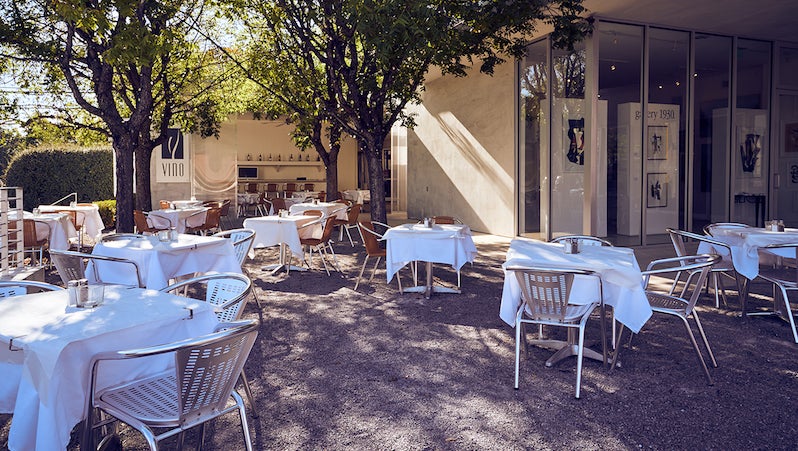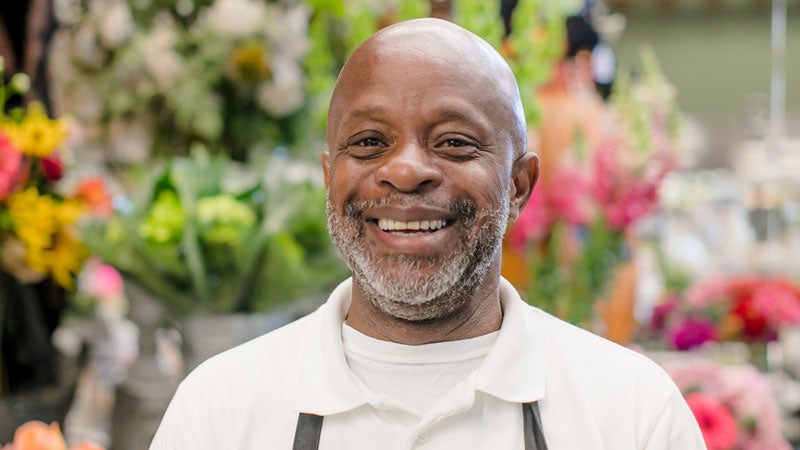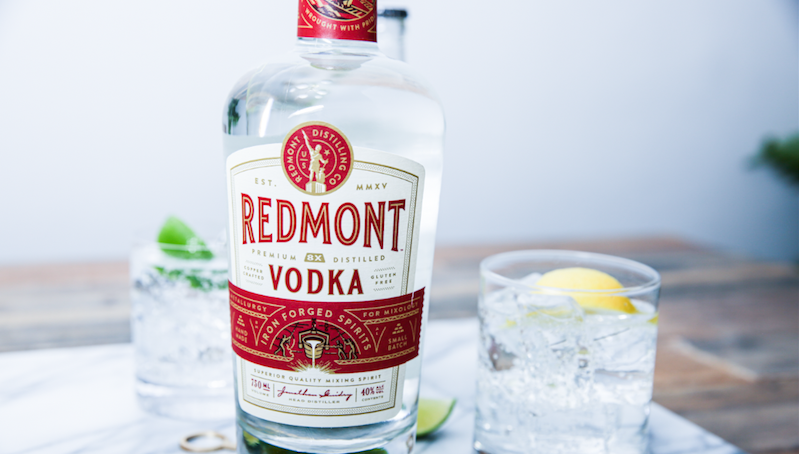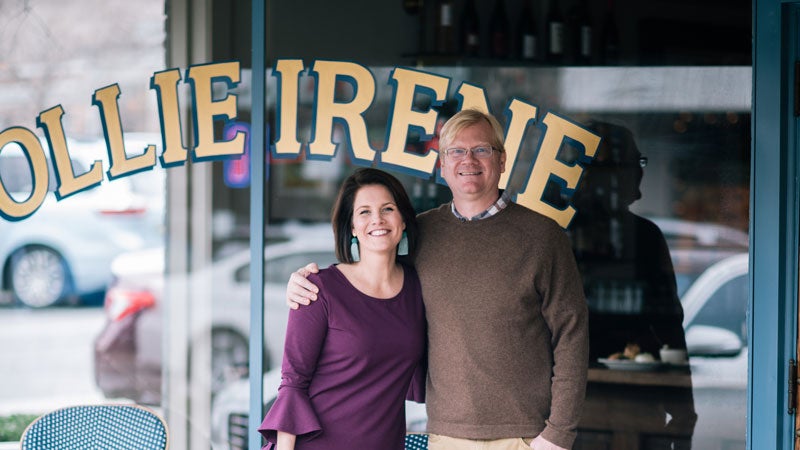No one can deny that this past spring has been a season dominated by fear, funny memes, anxiety, bread baking, face masks and more than a few puzzles. And in Mountain Brook, there has been another dominant force at work: community.
In the face of so much uncertainty and doubt, there is the one constant we can always rely upon here: a city that works together to lift one another up. In the span of a few short months, we have shown that we are a sum of our parts. We show up. We offer help. We get creative in solving problems. That is especially true in the restaurant business where so many chefs, owners and restaurateurs who wanted to survive, found themselves pivoting in unexpected ways. We polled a few of our favorites in late May to see what quarantine looked like to them and their respective operations.

Photo by Catherine Mayo
Carole Griffin—Chez Lulu and Continental Bakery—English Village
How would you describe your restaurant/dining establishment, prior to COVID-19?
A full-service artisan bakery and a casual-dining, European-style cafè bistro.
When did you realize you were going to have to make some changes to business-as-usual?
On a trip to Baltimore to visit my son at college, the coronavirus was just starting to appear in the news cycle. On the drive up, we stopped at several drugstores to buy sanitizer, just to be safe, and consistently found empty shelves. It was eerie. We started placing calls back to the bakery, speaking with managers, sharing our concerns and observations, arranging for our GM to purchase the raw ingredients for homemade hand sanitizer for our employees.
What changes did you make immediately and did any of those changes evolve over time?
Even before returning home from Maryland, strict guidelines for disinfecting all work areas and equipment every half hour, and policies for hand washing, glove use and social distancing among employees were imposed. After we got home, we distributed a questionnaire to employees, gauging their feelings of safety at work, and in response, installed plexiglass barriers between customers and staff, and re-tooled our point-of-sale system to make all transactions as contact-free as possible. We redesigned the flow of the retail area of the bakery, rearranging furniture and putting tape markings on the floor to guide customers in and out of the shop, one at a time, at a distance of 6 feet from each other. At the cafè, we closed the dining room and sidewalk for customer seating. We removed all tables and chairs and placed a podium out front with a server available to take orders and deliver carry out to walk-up and call-in customers. To help staff lighten the mood for our customers, and to make enforcing the 6-foot distancing less onerous, we even retrieved from storage the silly “Bastille day” castle we use for our annual storming of the Bastille celebration. We installed it at the front door as a light-hearted reminder that we needed everyone to maintain their distance while ordering. We also completely designed and implemented an online ordering platform and invested in a new phone system to handle increased call volume.
How did your regular customers respond?
This has been the most moving, and frankly humbling, aspect of our experience with the pandemic. Before we had even begun to realize the gravity of what was to come, we began noticing a dramatic uptick in gift card purchases. Some loyal and dear customers would purchase several hundred dollars at a time. As employees began to request time off to care for elderly parents or vulnerable family members or young children home from school, we received a check from the mayor that helped us reach out to them and ease their burdens. I think that the most touching thing was the outpouring of love and support from customers for our efforts to provide a safe environment, at a time when it was so hard to know whether we were over-reacting or not actually doing enough to respond to the crisis.
The epitome of all these gestures was a note I received from a long-time customer when we decided to close for two weeks during the peak of the virus, in response to employee anxiety. Even though he is currently living on a limited income, this customer included a check for $100 and wrote: “I heard where you have decided it best to close for a couple of weeks for the health and safety of you all. I know that was not an easy decision to make. So as to provide a small offering of help (a full-time worker’s pay for a day) I am sending this $100 check. It is my way to say THANKS for all the years I’ve bought bread and hung out and wrote inside or outside the bakery. You all have my best wishes for health and a return to the thriving sustainable bakery/cafe you always were…” That kind of says it all.
Do you have a business mentor or someone you regularly turn to for advice?
Frank and Pardis Stitt have always been wonderfully supportive friends and confidants. I believe that we have responded similarly to the crisis, and that is affirming. Pete Halupka and Lindsey Whiteaker of Harvest Roots Ferments are two of my favorite people, and business associates I count on consistently to provide a North Star of moral clarity when it comes to difficult times in business. They have been deliberative and considered during this time, drawing together members of the restaurant community to chart a path forward through all the uncertainties. I’m really grateful to them for the example they set for collaborative community.
What local resources were most helpful?
I adore the Mountain Brook Chamber! Suzan Doidge and Molly Wallace are awesome leaders and cheerleaders. The mayor has shown good leadership and compassion. The community has been supportive and kind. And the Paycheck Protection Program has been a godsend.
What is one thing you will never take for granted again?
Hugs! Other things? The easy banter with customers enjoying a magical evening at the cafe. Or chatting in the morning with the group of older gentlemen in the bakery turret. Or most of all, the festivals! Those silly festivals we have every season, with crowds of people singing and dancing and eating and drinking on the sidewalks and in the streets. The parades and performances, dances around the maypole and rites of spring at our Springalingadingdong Festival, storming the Bastille and eating watermelon for the Quatorze Juillet, or leading a lantern parade carrying light into the darkness of winter for our FallOohlala Festival. Chez lulu and the Continental Bakery are lively businesses. We love life, good food, music and community. We bring people together and we let the good times roll. And while we’re keeping all that alive in our hearts as we care in a different way for all our people, we’ll never ever take it for granted again. We’re gonna make it through this, together, even if apart for now. And we plan to be around for another 35 years!
 Maurico Papapietro—brick and tin—Mountain Brook Village
Maurico Papapietro—brick and tin—Mountain Brook Village
How would you describe your business BEFORE quarantine?
I would say we were a restaurant that was thankfully known for being packed, especially at lunch with lines out the door and tables packed close together. So, in the face of shutdown, it got scary pretty quickly.
What were some of the challenges you faced?
Revenue just stopped. But even before that, our challenges were health-related—the health and well-being of my staff, my family, and our customers. It is not like you hunker down, weather a storm and then once the storm has passed, you go back to business as usual. There are so many small details and minutiae in running a restaurant that sometimes go unseen by the average guest—from having the right containers for to-go items to increased cost of ingredients. My best-selling menu item since day one has been the beef brisket sandwich. My brisket price has gone from $3.75/pound ,and now I’m paying more than double that. Since I’ve elected to not raise the price on that item, I am losing money on it.
How is your staff holding up?
Pretty well. At the time we closed on March 18, I had 52 active employees—all but five are ready to come back full-time. There is so much camaraderie and understanding though and many of them do not have large cash reserves. I will say there was an overwhelming sense of relief from the staff when I closed because people were getting scared, with all the uncertainty. I could see it in their faces.
I worked with several professionals and friends in the restaurant industry about the best way to take care of our staffs, financially. The unemployment payment increased, coupled with the stimulus check and the Payroll Protection Program funds, and we were able to meet about 80 percent of their financial needs.
How did your day-to-day operations change?
We closed all-together for a bit and then gradually went to curbside and delivery. This community has been so great about supporting us that even with that change in the way we deliver service, we were able to get back to about 80 percent of our regular revenue from where we were previously.
What local resources were especially meaningful to you in this time?
My local bank, Iberia, and my banker, Mary Alice Kline were rock stars in terms of securing PPP funds lightning-fast. And I have been in the restaurant business here in Birmingham for more than 20 years, so I was able to reach out to the guys at Paramount and El Barrio, Mark Driskill at ASH, Chris Hastings, Pardis and Frank Stitt—we were talking a lot in those early weeks about what to do and how to do it. This network of fellow restaurateurs was probably the most helpful of all.
What does the future look like?
We are thinking creatively while still keeping safety as number one. The Mountain Brook community has been so supportive with people who love us and want us back.
 Will Haver—Taco Mama and Otey’s—Crestline Village
Will Haver—Taco Mama and Otey’s—Crestline Village
How would you describe your restaurant/dining establishment, prior to COVID-19?
Taco Mama is a fun and cool taqueria with a creative menu of delicious food and hand shaken margaritas while Otey’s is a family-friendly neighborhood hangout with great food and live music.
What changes did you make immediately?
The first week, we minimized costs where we could in order to conserve our cash because we knew we were going to start hunkering down, and it was going to be a challenge to stay in business. But the mission was to conserve where we could without cutting our team members jobs.
How did you get creative in your pivot?
For Taco Mama, we created the Taco/Nacho Home Box complimented with a gallon of margaritas and then started letting our guests know about them. They really took off, and then we were running to try and keep up with the volume while at the same time learning a new approach on the fly. We knew it was a losing proposition as far as the profit-and-loss sheet was concerned, but we were just trying to survive and be there for our team and community.
At Otey’s, we continued to do our thing, just now curbside, and we continued to serve cheeseburgers, wings and roll-ups. But we started selling coolers of ice-cold beer, and we added a crawfish truck in the parking lot on some Thursday nights. We also allowed local musicians to come in, and we produced virtual shows to support our musician friends who have been playing at Otey’s for many years. Just trying to keep everything lively in a down time, but also thinking about how to keep our team fed and helping friends where we could.
What was one of your biggest challenges, aside from the financial ones?
We were having to source goods that weren’t easily available because the game changed instantly for the farmers and purveyors as well. We normally didn’t purchase certain ingredients and packaging in bulk, but we had to find it and go get it. For example, we would go through over 20 gallons a week of fresh lime juice because we were now selling more gallons of margaritas to-go. We drove to other states to acquire thousands of gallon plastic jugs for margarita mix, and thousands of cardboard boxes for Taco/Nacho Home Boxes. It was day-and-night, seven-days-a-week of sourcing, picking up products, all the while trying to perform without making mistakes for our guests who were supporting us.
How did your regular customers and the community respond?
Thankfully we have loyal guests, and they are extremely patient and understanding. We are proud to call Mountain Brook our home, and I am always amazed by how this community takes care of each other. The outpouring of love and support is ridiculous, and it gives us hope and lets us know that we are not alone. From the mayor and the city council, chamber, Mountain Brook police and fire—they have all been ultra-supportive. The friends who have taken care of us and our team at such a high level, they don’t know how much it means to service industry people. We had one team member who received a $500 tip, and believe me, it was at the right time, and excited the entire team.
Speaking of staff, how have they been holding up and how have you been able to best support them?
The team is holding up well. I think this crisis weighs on people in so many ways, and it can be mentally and emotionally draining, and then you add the physical side of work, but our team has always had a positive get-it-done type of mentality. It’s our culture and we live it every day.
We are still making so many different adjustments for today and the future, and they have supported me by showing up every day with a positive, whatever-you-need boss attitude. They are caring and talented people, and the only reason we are successful is because of them. We are determined as a team to be better than we were at everything we do, it’s a challenge we accept.
What resources have been most helpful in this time?
Our city has gone above and beyond and has been tremendously supportive, but the ABC board relaxing some of their alcohol laws in order for us to have a chance to sell sealed containers of alcohol off premise really gave us a chance to survive in my opinion. We knew we would not be able to turn a profit, but we felt we could take in enough revenue to keep our team going.
What is one thing you will never take for granted again?
For me, learning to slow down and enjoy when times are good and people are healthy. The excitement of working with like-minded people, and having full and vibrant restaurants with lines out the door. The simple pleasure of dining with family and friends. I love to dine, and I love to do it with my family and friends. People seem to have a lot more patience, kindness and grace, and they appear to take pleasure in just having the opportunity see friendly faces and dine again.
 Al Raibee—VINO—English Village
Al Raibee—VINO—English Village
How would you describe your restaurant/dining establishment, prior to COVID-19?
An intimate Mediterranean dining spot, featuring fresh seafood, oysters, crab claws, pasta and other healthy menu choices along with an extensive wine collection.
When the lockdown was announced on March 17, what changes did you make to your operations?
We created a curbside ordering system the next day, with free delivery within 3 miles. In addition to offering our complete dinner menu, we brought back our spinach lasagna with garlic bread and salad. We also offered a 25 percent discount on all of our wine bottles for curbside sale.
How did your regular customers respond?
Many of our regulars ordered daily. Many stocked up on their wine selection at home. Some brought their own folding chairs and small tables and set up on our sidewalks every afternoon. Our gift card sales went up 45 percent. Tips to staff increased, averaging about 40 percent! One day, a car stopped by, and the gentleman told the staff, “I don’t have an order but this is for you for being here!” It was a $100 bill!
Speaking of staff, how have they been holding up and how have you been able to best support them?
The first good news was the $2,000 grant check to help to our staff from the Mountain Brook Chamber of Commerce and our own Mayor Welch, which we received within the first week after lock down. This was distributed among all staff. One of our most senior members donated his share to others and would not accept any of the scarce shifts available, trying to help the ones in more need. We also painted all of the chairs and table bases using our staff for the following two weeks
What is one thing you will never take for granted again?
The kindness of others.
How would you describe VINO now?
About the same with some temporary modifications offering the same. And we are more humbled and hopefully a bit wiser.
 Debbie McKinstry—daniel george—Mountain Brook Village
Debbie McKinstry—daniel george—Mountain Brook Village
How did your business pivot during the pandemic?
Well, the restaurant had its best year yet in 2019, and in January and February of this year, we were off to a great start when things came to an immediate halt. We reopened on April 6, offering curbside service for lunch and dinner but quickly shifted to just dinner. With fewer people working, there just weren’t as many takers. It was strange to see Mountain Brook Village empty in the middle of the week. Parking places everywhere! We have also delivered lunches to UAB several times to the healthcare workers.
How did your regular customers respond to the changes?
Many of our regular customers have been so supportive of daniel george and our staff. Some people ordered food to go a couple of times a week. They also tended to leave generous tips to our wait staff who were here taking orders and getting food to the car. Tips have been left to the kitchen staff as well. I believe having our business in Mountain Brook has made a big difference in our ability to continue to bring in some revenue. This community is a very generous one.
How is your staff doing?
Our staff seems to be holding up well. Fortunately, we were able to get the PPP loan pretty early on, so it was great to be able to pay the staff even though they were not able to work. All of our kitchen staff has taken turns coming in to work to cook the food for the curbside orders. Several waiters have taken shifts to manage the to-go orders. It certainly made it more normal to see some of them here and we miss those that we haven’t seen at all.
What local resources were most meaningful during this time?
The Mountain Brook Chamber of Commerce has been very helpful. In the beginning, The Welch Foundation allocated money specifically for kitchen and waitstaff of Mountain Brook restaurants. They have also kept in good communication with the small businesses. They have shared lots of information with all of us in regard to the new safety guidelines and regulations. In addition, the CARES Act backed by the federal government which includes the Paycheck Protection Program has been an incredible resource. It is difficult to see how we could have made it through this without it.
What is something you will never take for granted again?
I will never take for granted the ability to have our doors open and serve our customers.
 Julie Grimes—Black Sheep Kitchen—Crestline Village
Julie Grimes—Black Sheep Kitchen—Crestline Village
How would you describe Black Sheep Kitchen, prior to COVID-19?
The core business of Black Sheep Kitchen (BSK) has always been fresh food that’s cooked daily, cooled, and packaged for guests to take home, reheat, and enjoy in the comfort of their homes.
When did you realize you were going to have to make some changes to business-as-usual?
I feel like we were really ahead of the curve because I kept a close eye on the situation as it developed globally. My sister lives in New York City and her husband is an infectious disease doctor, affiliated with NYU, so they were a great source of information also. We followed the president’s daily briefings with particular interest in the advice of Dr. Fauci, and I’ve followed the information put out by the Alabama Department of Public Health as well. I also called my health inspector early on. It was helpful to speak directly to her and get my questions answered, as well as getting clarification on guidelines from Governor Ivey as they were issued.
What did your “pivot” look like?
We decided based on our small space that it was in everyone’s best interest to allow only employees in the store when dine-in restaurant service was prohibited. At the time that decision was made, I also instituted a policy that every employee would be required to have their temperature taken before entering the building each day. We continue to adhere to both of those policies/practices to this day.
Our menu has changed as well. In the beginning, I didn’t change our offerings at all, and in the absence of foot-traffic in the store, I was having an unacceptable level of food waste. We learned pretty quickly that the menu had to be pared down and streamlined. We are still currently offering fewer items each week than our old “normal.” We’ve also offered curbside pick-up between the hours of 2 and 6 p.m., shortening our sales day.
What has it meant to BSK to be located in Mountain Brook?
Has it helped to operate in Mountain Brook? ABSOLUTELY! Without a doubt. This community is always SO very generous in their support of local business, so it’s the best place to run a business under normal circumstances. If possible, it’s even more so now that so many things in the world are uncertain. Let’s start with a HUGE thanks to the mayor for his immediate and generous offer to provide assistance to Mountain Brook restaurants and food-based businesses and their employees. I consider BSK guests more like my neighbors and family than just customers. And, so we strive to be good neighbors, friends and family in return. Folks have been so appreciative that we’ve remained open throughout the quarantine, and it’s been our honor and pleasure to nurture people through these trying times
Is there one particular act that specifically stands out in your mind?
I think the best example I can offer is regarding the Parkinson Association of Alabama’s (PAA) Taste for a Cure. I was scheduled to be one of many chefs to offer a tasting at their annual fund-raiser, originally scheduled in April of this year. Obviously, the event was postponed, and as quarantine continued in effect, the charity began to explore ways they could proceed with their event, making appropriate modifications. The original idea for the re-imagined event was to solicit several chefs to cook meals that could be purchased with proceeds going to PAA. In the end, Black Sheep Kitchen had the honor of cooking all 287 meals for the event. It was such a success that we closed to the public for the day and focused solely on the fundraiser. All of this was possible because one of our guests (a Mountain Brook family, of course) brought me the opportunity. I’m so grateful.
How has your staff fared during this time?
I’m a bit at a loss for words as to how I can answer this question. My employees are fantastic. They are the reason it’s been possible for us to remain open and operational throughout quarantine. They’ve shown up every day. With a smile. And they’ve worked their tails off. Early on, when I questioned whether it was safe for employees to continue to work, the amazing Laura Williams didn’t flinch in her insistence that she would rather be at work than any other place. Another employee, Clay Cooper, has thanked me more than once for the opportunity to remain employed during the pandemic. Throughout all the changes and the ups and downs of the past few months, my employees have served BSK with grace, and they’ve made me proud to have such an amazing team.
What is one thing you will never take for granted again?
Life is so precious and fragile. No one is immune to deadly illness. We have to take care of one another like lives depend on it.
How would you describe Black Sheep Kitchen now?
I would say BSK is a shell of its former self. We long for the company of our beloved guests.











